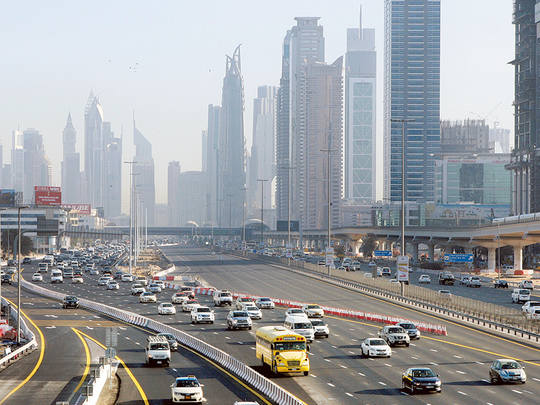
The first half of the year has uncovered new trends in Dubai’s real estate market, which hints at a tough year ahead for the industry, particularly for brokerage houses. With secondary market sales dipping in the residential segment, brokerage houses are coming to terms with the reality of a competitive market.
There are many reasons to believe that the market could remain subdued despite the Iran nuclear deal, which is being touted as the best pitch by sellers/agents at the moment. If anything, the deal could only benefit the office sector.
More pertinent issues, however, are being brushed under the carpet such as the high cost of living that is biting the middle class within the local resident base. Apart from housing, education and health-care sectors fuelled by private equity money are charging ridiculous amounts — one of the highest in the world — and putting residents on the edge.
A recent survey conducted stated that half of the expats living in the UAE have considered leaving the country due to the increased cost of living. As per statistics from Moody’s, scrapping fuel subsidies will cost each resident in the UAE an average of $387 this year, and this is at a point in time when oil prices have been plummeting since mid-2014.
With the mid-income segment already feeling the pinch, and with the addition of oil price costs to the household bills, disposable income will definitely take a hit on every family. This is in addition to the stress caused by extortionate amounts paid towards house rent, school fees and utility bills.
This will obviously have a fallout on other sectors such as retail, but the property sector is feeling the pinch now. The upward sloping curve for the cost of living is now not only making it difficult for expats to continue living in the UAE, but also brings a curtain call to new expats looking to move into the country.
As per Mercer’s 2015 cost of living survey, Dubai and Abu Dhabi have been ranked as the 23rd and 33rd most expensive cities in the world. The two cities have experienced a significant jump as compared to their rankings in 2014.
For a mid-income individual looking to migrate to the UAE, this could be a worrying cause, which will, in turn, have an impact on the real estate sector as the demand to match supply will fall short.
This is a cause of concern for retail investment in property. With low disposable incomes, end-user investment in property will remain elusive and, therefore, hurt long-term demand.
The slump in oil prices is likely to continue its hit on the real estate sector, which had already been weakening due to the imposition of mortgage caps and the hike in property transaction fees. The only thing to note here is that, during the global financial crisis, the slowdown was primarily due to a lack of liquidity, whereas this time, it is mainly triggered due to cautious investor sentiment.
A lot of GCC buyers, which account for nearly 17 per cent of the market, traditionally buy real estate using money that has come from oil-funded economies. It is easy to assume that the investment appetite of this particular segment will be reduced due to the fall in oil prices.
Another issue stems from regulation being imposed by governments of India and Pakistan on foreign investments abroad. New tax regulation by both has made it difficult for buyers to make investments abroad.
Authorities of both countries are keenly following up on investors’ tax detail and sources of income. This might deter some buyers from making investments in the emirate or end up paying heavy tax liabilities that would reduce potential returns.
The above factors will keep the market subdued for a while until self-correcting mechanisms bring property prices and the cost of living to more sustainable levels and foster more end-user investment.
The silver lining, however, is that the UAE still remains a safe haven for investment in the Middle East, which is a good enough reason to keep the investments coming. However, tackling issues such the rampant increase in cost of living would be in the long-term interest of the sector and the overall economy.
— The writer is Country Manager at Chestertons Mena.












